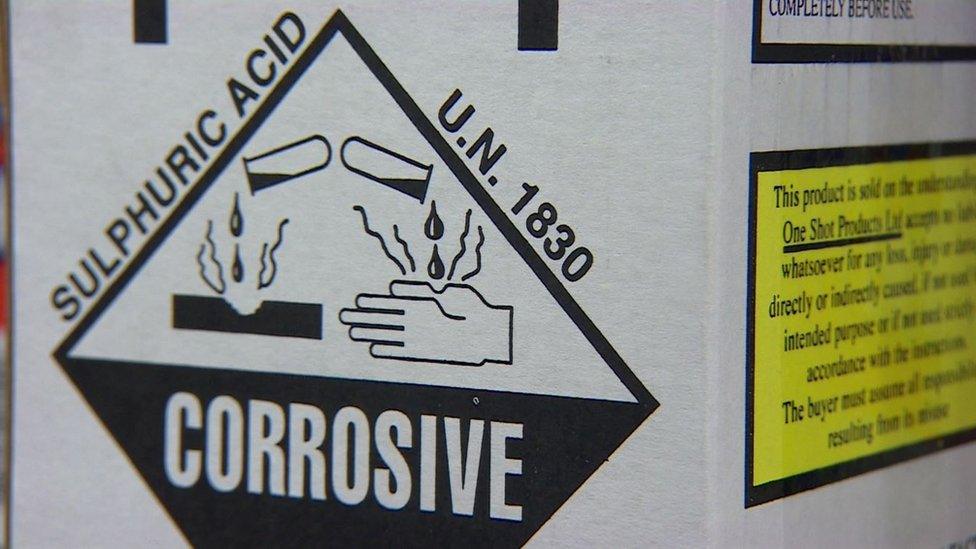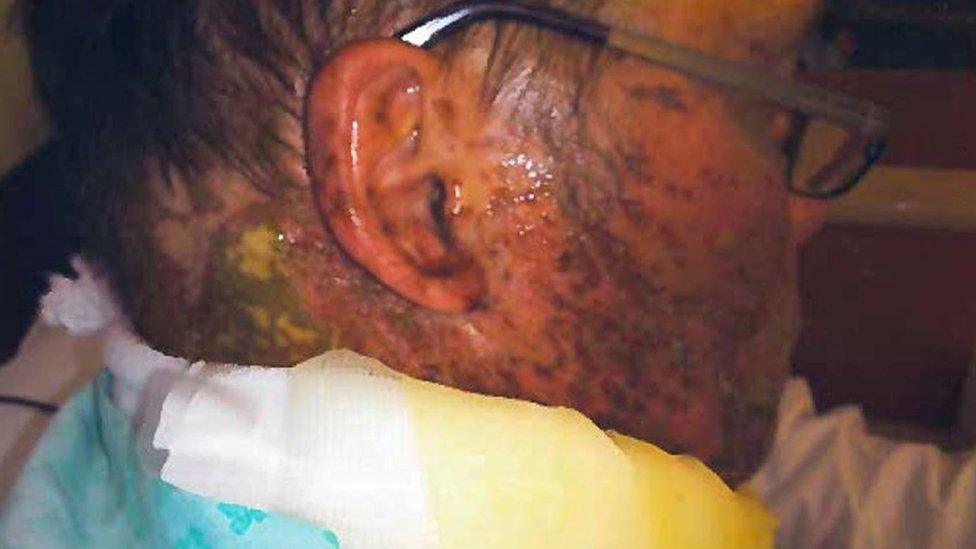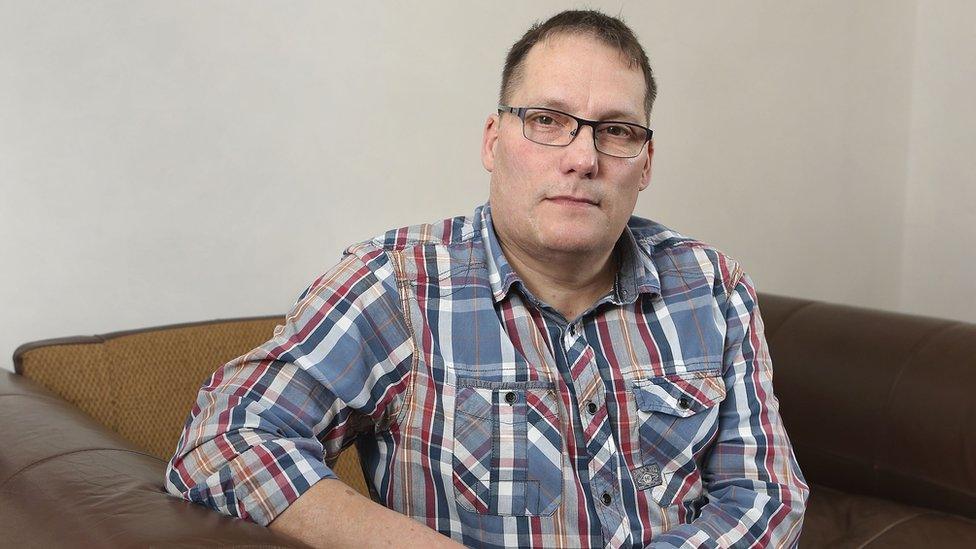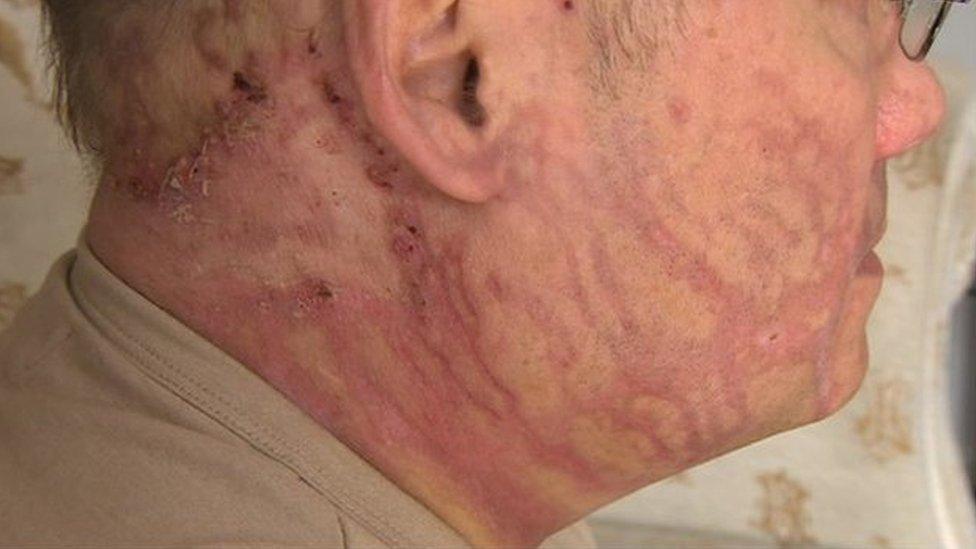Sharp rise in attacks involving corrosive fluids in London
- Published

Figures obtained by BBC London reveal more than 450 people were victims of an attack last year.
The number of acid attacks in London has risen sharply in the past four years, according to new figures.
Since 2010 there have been more than 1,800 reports of attacks involving corrosive fluids in the capital.
It is thought acid is becoming a preferred weapon for gangs due to its ease to obtain and lack of trail to the perpetrator.
Last year it was used in 454 crimes, compared to 261 in 2015, according to Met Police figures obtained by the BBC.
Almost a third of these attacks were carried out in the borough of Newham in east London.
Men are twice as likely to be victims of acid attacks in London than women, it was found.
The vast majority of cases never reach trial, according to the figures.
Since 2014 about 74% of investigations have been wound down due to problems with identifying perpetrators, or victims being unwilling to press charges.
According to figures obtained through a Freedom of Information request to the Metropolitan Police Service "corrosive fluids" were used in murders, robberies and rapes.


Wayne Ingold had to be washed for 40 minutes to try to neutralise the acid
'Physically sick'
Wayne Ingold was attacked in 2014 in a case of mistaken identity after opening the door to a teenager.
"The pain on my face was indescribable. My face was melting and turning yellow," he told BBC London.
"One of the police officers was physically sick when he saw my face.
"Internally I'm scarred as well. For ages I was scared of reprisals. I had to move because of it and lost my home.
"It turned out the boy who did it was 15, and a convicted dealer of cocaine."

Mr Ingold had to have a graft to replace the skin on the back of his neck

Since the start of 2017 there have been 49 crimes where "corrosive fluids" were thrown with "intent to cause grievous bodily harm" or to "cause an explosion".
Dr Simon Harding, Criminologist and expert on gangs at Middlesex University, said there was anecdotal evidence gangs are switching from carrying knives to acid.
"It's not prohibitive to carry bleach, you can buy it online or any DIY stores, it's difficult to prove any illegal motive in carrying it and you can hide it or disguise it in a drink bottle," he said.
"A knife attack is attempted murder, but if you're caught in an acid attack it would be GBH.
"There's no specific offence regarding acid attacks" he added.
- Published21 March 2014

- Published14 January 2016
